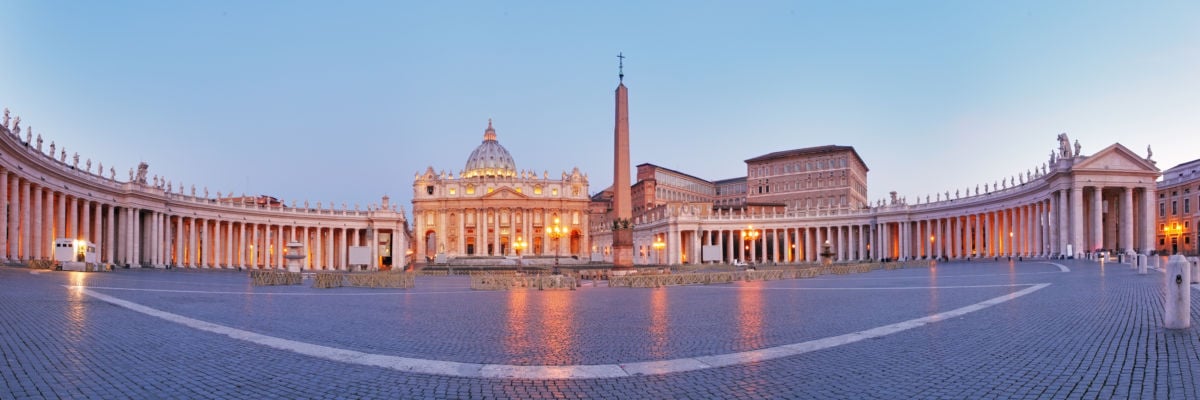
Question:
Answer:
The infallibility of the Church in general—and the pope in particular—is not a doctrine that suddenly appeared in Church teaching; rather, it is a doctrine that was affirmed in various ways in the early Church, beginning with our Lord Jesus Christ’s words to the first pope, the Apostle St. Peter, and also to the apostles in general.
For example, Jesus instructed his apostles to preach everything he taught (Matt. 28:19–20) and promised them the protection of the Holy Spirit to “guide you into all the truth” (John 16:13), and that includes a greater understanding of the Pope’s infallibility over time. God’s truth doesn’t change, but our human apprehension of that truth in the Church can increase over time.
In addition, Jesus prays that his disciples, the Church, “be one,” as he and the other Father “are one” (John 17:20–23). That would require that Peter and his papal successors be infallible, as the visible and supreme leaders of the Church of earth, as the ones who uniquely hold “the keys of the kingdom of heaven” (Matt. 16:19), so that they can preserve God’s unifying truth, lest the sheep be scattered through error.
In addition, the doctrine of infallibility is implied in these texts about St. Peter and his Petrine successors: Matthew 16:18-19 (“You are Peter . . . “); Luke 22:32 (“I have prayed for you that your faith may not fail. . .”); and John 21:15–17 (“Feed my sheep . . . “). Peter’s God-given mandate, and Christ’s related promises, guarantee that the Church will never fall away from his teachings (Matt. 16:18; 1 Tim. 3:15), even if individual Catholics might.
As Christians began to more clearly understand the teaching authority of the Church and of the primacy of the pope, they developed a clearer understanding of the pope’s infallibility. For example, in the late second century, in his magnum opus Against the Heresies, St. Irenaeus of Lyons, writes of the Church of Rome, over which Peter and his papal successors preside,
With that church, because of its superior origin, all the churches must agree, that is, all the faithful in the whole world, and it is in her that the faithful everywhere have maintained the apostolic tradition ((Against Heresies 3:3:2 [A.D. 189]).
In 251, St. Cyprian of Carthage, writes:
If someone does not hold fast to this unity of Peter, can he imagine that he still holds the faith? If he [should] desert the chair of Peter upon whom the Church was built, can he still be confident that he is in the Church? (The Unity of the Catholic Church 4; 1st edition [A.D. 251]).
Further, in the fifth century, St. Augustine succinctly captured the ancient attitude when he remarked, “Rome has spoken; the case is concluded” (Sermons 131, 10).
For more information on this topic, please see our “Papal Infallibility” tract. See also our tracts on “What the Early Church Believed: The Authority of the Pope,” Part I and Part II, including noting how Popes in the early Church exercised their primacy of authority, and the related statements that they made.



